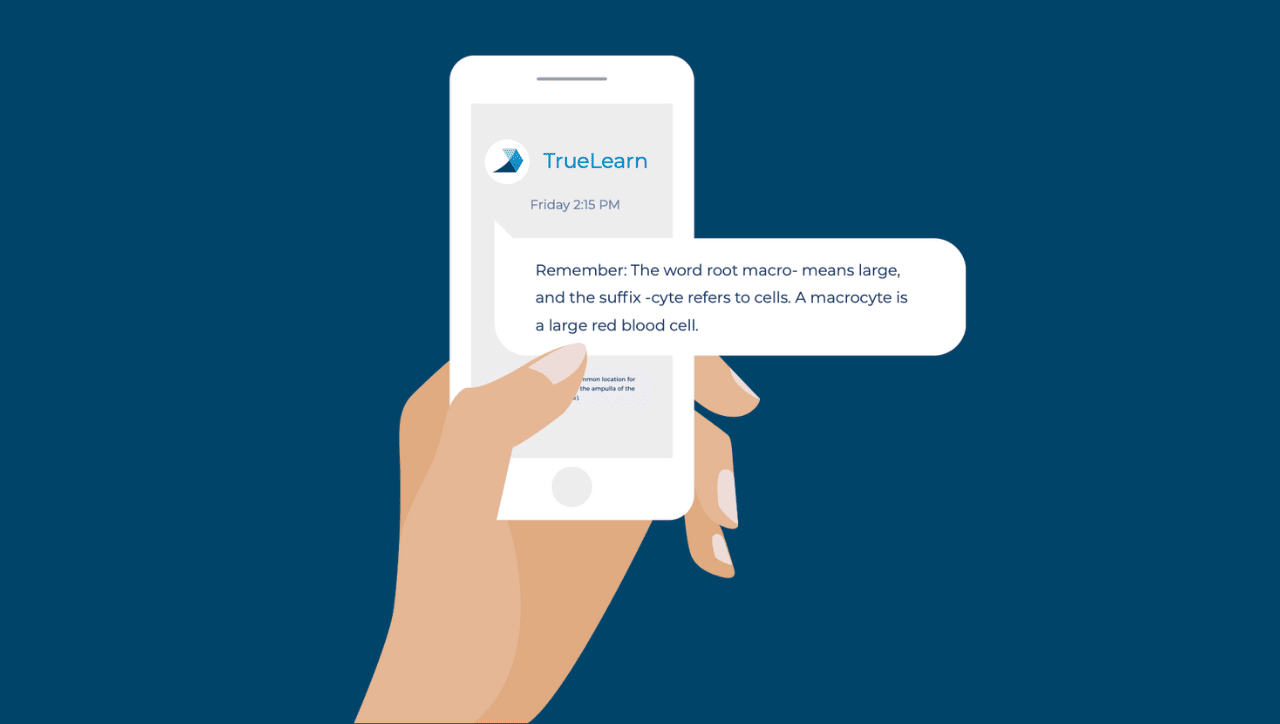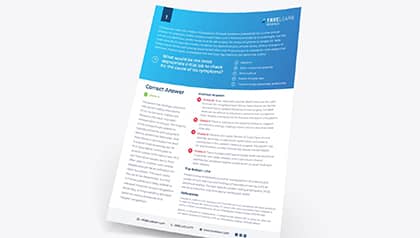How the Right OBGYN Board Prep Can Prevent Failure
Administered by the American Board of Obstetrics and Gynecology (ABOG), the Written Board Exam is the first of a two-part series of exams required to pass for a physician’s certification.
If you are anxious about taking the OBGYN boards, you’re not alone. It may seem like a daunting task, but passing the written exam is achievable with the proper OBGYN board prep. Here are some actionable tips to help you pass the written board and retake it if you’ve failed before.
1. Familiarize yourself with the exam
The more you know about the exam itself, the better. This knowledge can help you combat test anxiety and any pesky fears of failure. Let’s run through the basics.
The ABOG written exam consists of 230 single-best-answer multiple-choice questions. It is a pass-fail exam that is 3 hours and 45 minutes long and has no scheduled breaks.
The content blueprint, provided by the ABOG, is as follows:
- Gynecology: approximately 33%
- Obstetrics: approximately 33%
- Office practice and women’s health: approximately 33%
For more information, including a breakdown of the content blueprint, read Everything You Need to Know About the ABOG Qualifying Exam.
2. Make a robust study plan
Studying for hours with no goal or end in sight is counterintuitive. A comprehensive study plan with scheduled rest days is essential to receive your best exam score. Your plan should include gathering your study materials, which topics you’ll cover by week, and the set of practice questions you’ll review. Don’t forget to schedule study breaks and rest days to recoup. Those are important, too.
3. Increase your practice questions weekly
Practice questions make a significant difference for OBYN written board prep. Familiarizing yourself with OBGYN board questions will help you implement test-taking strategies and build stamina, preparing you to answer questions with ease on exam day. Start reviewing a few questions a day, and then augment the number of questions you review week over week.
Need a trusted question bank? Try TrueLearn’s ABOG Qualifying Exam Question Bank. Mapped to the ABOG Qualifying blueprint, our question bank is written by content experts and has 1,500+ high-quality practice questions with explanations. And if you’re worried about passing, we offer a first-time pass guarantee on 90+ day subscriptions!
4. Track your progress
Create a biweekly or monthly check-in to map your progress in certain subject areas. If you’ve been struggling with a topic, this is the perfect time to adjust your study plan. On the other hand, reflecting on your success will boost your confidence and keep you motivated to keep going. For every benchmark you reach, celebrate it.
Did you know that if you sign up for TrueLearn, you can use SmartAnalytics to track your progress and see how you measure up against your peers?
What is a good exam score?
The ABOG written exam passing score is just that—passing! You will receive a pass-fail result and a scaled overall score with a percent scored in each major content area. If you need to retake the exam, use this information to focus your studies.
You can view how first-time takers did on the ABOG website; this performance summary includes the 2022–2024 ABOG qualifying exam pass rates by program.
What to do if you fail
If you fail the ABOG written exam, it’s okay to be disappointed—just let that failure become a learning opportunity. You can retake the exam as long as you apply and pay the exam fee again. Dust off your shoulders and follow these tips to help you bounce back.
1. Adjust your approach.
Something didn’t work the first time. Take a closer look at your study plan and reflect. Were you cramming or overloading your schedule? Were you procrastinating and not using active study methods? It’s essential to be honest with yourself. Find out what needs improvement and what needs to be avoided altogether.
2. Assess your resources
A common mistake examinees make is using one too many study resources. This time around, focus on utilizing high-yield study tools with built-in, comprehensive features. There’s no need to read every single review book. The right resource can make all the difference.
TrueLearn, for example, takes preparation for OBGYN boards to the next level. Beyond high-quality practice questions and explanations, you can use TrueLearn’s question bank to make custom quizzes, dive into your individual testing habits, take notes, and create goals.
3. Use practice exams to regain your confidence
Practice exams are key to increasing your recall and improving your performance. But they’re also perfect for rebuilding your confidence, reviewing your progress, and reaffirming what you know. When in doubt, take a practice exam to see how you improved over time and give yourself a pat on the back.
Use an ABOG Qualifying Exam Question Bank to simulate what you’ll encounter on exam day. With the right practice questions, you can start employing test-taking strategies to beat the exam jitters and conquer the OBGYN written boards with confidence.
Good luck!


